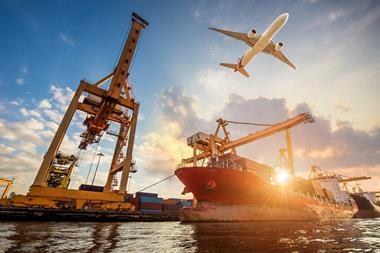
UK freight forwarder association BIFA has outlined the main trends it expects to impact the forwarding market in 2025, with trade and technology topping the agenda.
BIFA director general Steve Parker said that he expected the coming 12 months to be a dynamic period for forwarders with growth being fuelled by increasing levels of trade.
“With new trade agreements, advancements in automation, and a heightened focus on sustainability, BIFA members of all shapes and sizes are forecasting growth opportunities alongside significant challenges,” said Parker.
The forwarder association pointed out that the International Monetary Fund (IMF) has projected that global trade volumes will increase by 3.2% in 2025, driven by easing geopolitical tensions, expanding e-commerce, and growing consumer demand in emerging markets.
“These developments provide fertile ground for freight forwarders and logistics providers to enhance their services and seize new opportunities in cross-border shipping,” BIFA said.
On e-commerce, BIFA said that the global online sales market is expected to surpass $7.4trn by 2025 and is further driving the need for efficient logistics and last-mile delivery solutions.
“Freight forwarders are rapidly adapting to the demands of faster shipping and expanded network coverage, particularly in underserved regions,” BIFA said.
Meanwhile, new technologies will help drive efficiencies, with Artificial intelligence (AI), blockchain, and Internet of Things (IoT)-enabled devices transforming shipment tracking, customs clearance, and warehouse management, while automation is expected to reduce costs while improving transparency and customer satisfaction.
“2025 is the year where digitalisation and data-driven decision-making will become a necessity rather than an advantage,” Parker added. ”The integration of real-time analytics and autonomous systems is revolutionising how BIFA members are managing global supply chains.”
Elsewhere, Parker said that shippers were ”looking beyond cost and speed — they want greener logistics solutions”.
”This shift is creating both challenges and opportunities for logistics providers,” he said.
BIFA said that regulators and consumers were demanding environmentally conscious practices and sustainability would therefore be a top priority in 2025.
”Many companies are committing to carbon-neutral shipping solutions, investing in green technologies such as electric vehicles and alternative fuels,” BIFA said.
Other challenges outlined by BIFA include ever-changing demand and supply dynamics across all modes of transport; geopolitical uncertainties; fluctuating fuel costs, and regulatory complexities.
”Additionally, labour shortages in key markets highlight the need for investments in workforce development and automation,” BIFA said.
”As we enter the second week of 2025, the international freight forwarding and logistics sector stands at a pivotal moment.
“By embracing innovation, prioritising sustainability, and navigating global trade dynamics, the industry is well-positioned for sustainable growth and resilience in the face of ongoing challenges.”


















